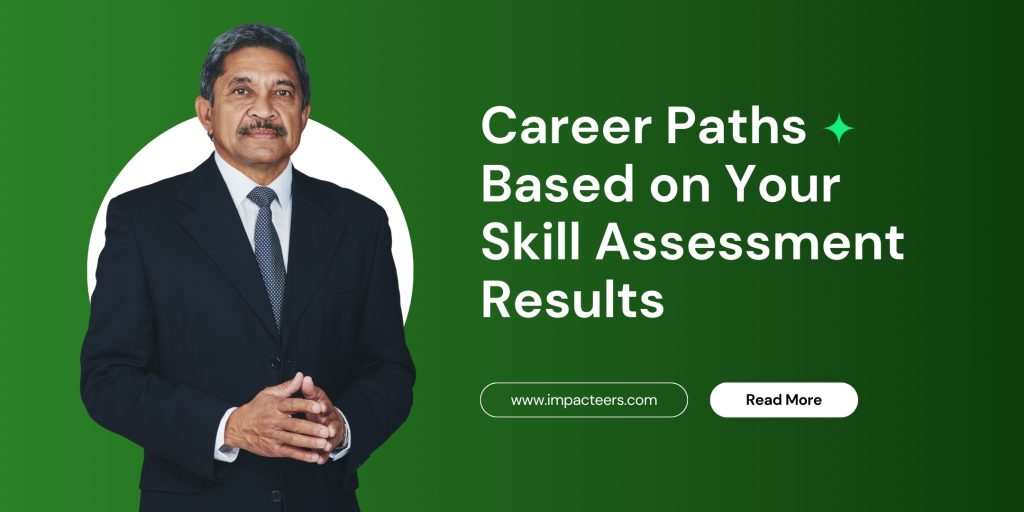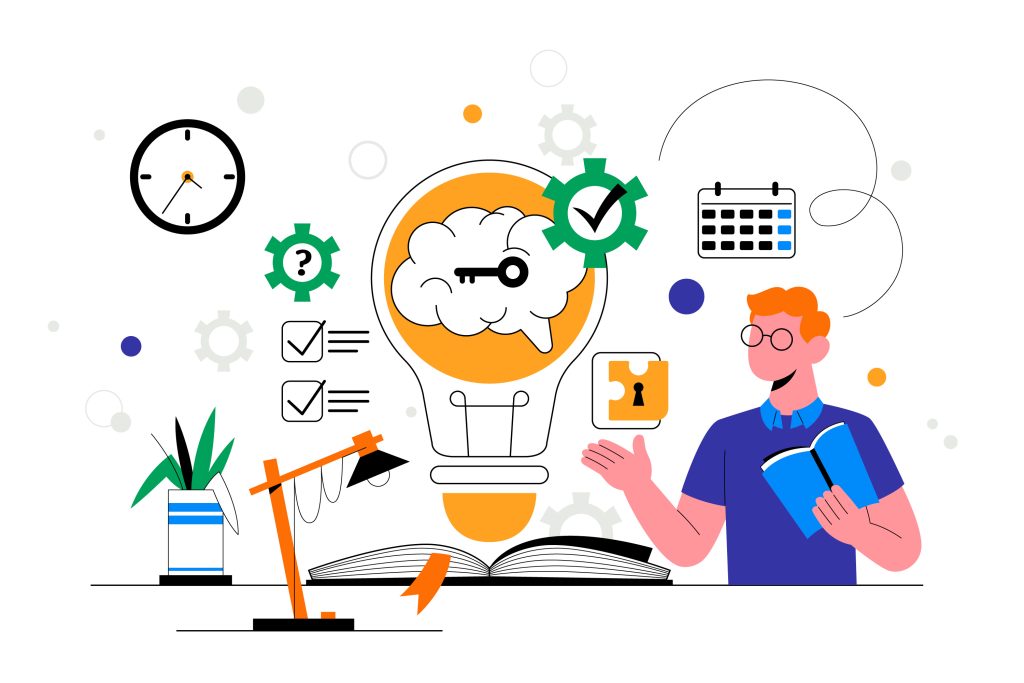Your skill assessment results can be more than just scores they can act as a roadmap for your career. By analyzing strengths and improvement areas, you can align yourself with the right roles and industries.
That’s where skill assessment tests come in they help you identify your strengths, weaknesses, and the types of jobs you’re most likely to succeed in.

In 2025, companies and professionals alike are leaning on skill assessments to make smarter decisions. Whether you’re a LinkedIn-active job seeker or a student mapping out your future, understanding your results is the first step toward a fulfilling career.
Visit us >>>https://www.impacteers.com/home/skillassessment
In this article, we’ll break down what skill assessments are, how to interpret your results, and which career paths align with different skill profiles. We’ll also see how Impacteers helps you not just take the test, but actually use it to chart a clear and achievable career plan.
What Is a Skill Assessment Test?
A skill assessment test is a structured process designed to evaluate your abilities in areas such as:
- Technical skills (e.g., programming, engineering design)
- Soft skills (e.g., communication, teamwork)
- Cognitive skills (e.g., problem-solving, critical thinking)
- Self-management skills (e.g., time management, adaptability)
These assessments go beyond academic grades—they show how you think, handle challenges, and interact with others.
Why Skill Assessment Results Matter in Career Planning
Your assessment results act like a personal career compass. They:
- Highlight Strengths – Show where you excel.
- Identify Gaps – Point to areas for improvement.
- Match Roles to Skills – Suggest jobs where you’re likely to thrive.
- Save Time – Prevent wasted effort applying for jobs that don’t align with your abilities.
Employers also use these results to make hiring decisions, so understanding them can give you a competitive edge.
How to Read Your Skill Assessment Results
The results usually come in the form of scores, percentiles, or proficiency levels (e.g., Beginner, Intermediate, Advanced). Here’s how to interpret them:
- Above 80% – You’re highly skilled in this area; consider roles where this is a core requirement.
- 60–79% – You’re competent but could benefit from targeted training.
- Below 60% – You may need to invest time in learning before seeking roles that require this skill.
Tip: Don’t get discouraged by lower scores—they simply highlight where you have the most room to grow.
Career Paths Based on Common Skill Profiles
Here are some examples of career paths you might consider based on different skill profiles:
1. Strong Technical Skills + Analytical Thinking
Example Assessment Results:
- Engineering principles: 85%
- Problem-solving: 90%
- Communication: 65%
Potential Career Paths:
- Data Analyst
- Software Developer
- Mechanical Engineer
Impacteers Insight: If your communication score is moderate, Impacteers’ targeted communication workshops can help you interview better for technical roles.
2. High Communication + Leadership Skills
Example Assessment Results:
- Communication: 92%
- Leadership: 88%
- Time management: 70%
Potential Career Paths:
- Public Relations Specialist
- Project Manager
- Corporate Trainer
3. Creative Thinking + Design Skills
Example Assessment Results:
- Creative problem-solving: 90%
- Graphic design: 85%
- Management: 60%
Potential Career Paths:
- UX/UI Designer
- Content Creator
- Marketing Specialist
4. Strong Self-Management + Organization Skills
Example Assessment Results:
- Time management: 95%
- Process optimization: 88%
- Technical knowledge: 65%
Potential Career Paths:
- Operations Manager
- Event Coordinator
- Administrative Executive
5. Balanced Soft + Technical Skills
Example Assessment Results:
- Communication: 80%
- Technical: 78%
- Analytical thinking: 82%
Potential Career Paths:
- Business Analyst
- Technical Sales Engineer
- Product Manager
The Role of LinkedIn in Showcasing Your Skill Assessment Results
Platforms like LinkedIn allow you to display your assessment results directly on your profile. Recruiters often filter candidates based on these badges and verified skills.
Best Practices:
- Add completed assessments to your LinkedIn profile.
- Share a post about your results to attract attention from employers.
- Connect with professionals in career paths aligned with your strengths.
How to Improve Low Scores Before Applying for Jobs
If your results reveal weak areas, here’s what you can do:
- Enroll in targeted online courses – For example, if time management is low, take a productivity course.
- Practice through real projects – Volunteer, freelance, or intern.
- Retake the assessment after 30–60 days to measure improvement.
Impacteers offers tailored skill upgrade programs based on your assessment data, ensuring you focus on the right areas before job applications.

Using Skill Assessment Results to Save Job Search Time
One of the most overlooked benefits of an assessment is efficiency. Instead of applying for 50 jobs randomly, you can apply for 10–15 that truly fit your skill set—giving you more time to prepare strong applications and tailored answers for interviews.
From Test Results to Action Plan: A Step-by-Step Process
- Take the Assessment – Use a reliable platform like Impacteers.
- Review Scores Objectively – Focus on trends, not just single scores.
- Research Matching Careers – Identify roles that match your top strengths.
- Fill Skill Gaps – Take short courses or practice tasks.
- Update Resume & LinkedIn – Showcase your best results.
- Apply Strategically – Target companies that value your strongest skills.
Real-Life Example: How Assessment Results Changed a Career Path
Priya, an engineering graduate, always thought she’d be a mechanical engineer. But after taking a skill assessment test, she discovered her top strengths were communication and process management. With Impacteers’ guidance, she shifted her focus to project management roles. Within three months, she landed a job in a multinational company.
Why Impacteers Is Different
While many platforms offer skill tests, Impacteers focuses on:
- Detailed feedback, not just scores
- Career mapping sessions to link results with job roles
- Customized learning plans to improve weaknesses
- LinkedIn optimization tips to showcase your strengths
This approach ensures you don’t just take a test—you use it to design your career.
Final Thoughts
Your skill assessment results are more than numbers; they’re a blueprint for your future. Whether you’re a fresher exploring career paths or an experienced professional considering a switch, interpreting your scores correctly can save you time and lead to better decisions.
In 2025’s competitive job market, understanding where you stand—and where you can grow—can be the key difference between endless applications and landing your dream role. With platforms like Impacteers, you not only get the answers about your strengths and weaknesses, but you also get the guidance to act on them.
Learn More >>> https://blog.impacteers.com
About Us >>> https://www.impacteers.com
FAQs
1. What is the meaning of a skill assessment test?
It’s a structured test designed to evaluate your abilities in technical, soft, and cognitive skills.
2. How do I use my skill assessment results for career planning?
Match your top skills to roles that require them, then work on improving weaker areas.
3. Can I share my assessment results on LinkedIn?
Yes, and doing so can improve your visibility to recruiters.
4. Do low scores mean I can’t pursue a certain career path?
No—they indicate areas where focused learning can help you improve.
5. Why choose Impacteers for skill assessments?
Impacteers offers detailed feedback, career mapping, and targeted improvement plans, making it more than just a testing platform.



Post Comment